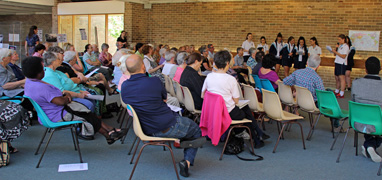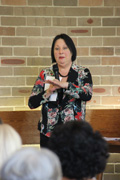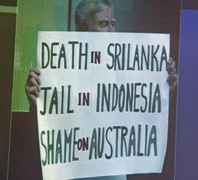Vale Nelson Mandela
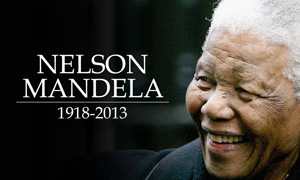
Stefan Gigacz of the Cardijn Community International, on the passing of South Africa's great leader, suggests...
Let's remember and pray for Nelson Mandela today... recalling his speech opening the IYCW World Council in South Africa in 1995 recognising the role of the YCW in the anti-apartheid struggle and building civil society.
| Dear Chairperson,
Delegates and friends,
It is indeed a great privilege for me to be present at the Official Opening Ceremony of the YCW World Council.
It is a special pleasure to associate myself with the Young Christian Workers` long record of standing up against injustice throughout the world, including South Africa.
You are all most welcome in South Africa, and we are honoured that you have chosen our country as the venue for your meeting.
Your decision to hold your Council here in the small and poverty-stricken community of Oukasie speaks louder than mere words.
Once more you are demonstrating in a practical way that a true commitment to justice demands more than good intentions and fine speeches.
It calls for a full association with those who are struggling for justice.
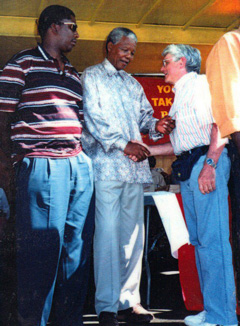
Oukasie`s long struggle for survival against some of the most vicious onslaughts of the apartheid regime, is renowned.
After every attack the residents of Oukasie reorganised themselves and sustained their resistance to forced removals.
As part of their struggle, the formed partnerships with Anti-Apartheid organisations throughout the world.
Oukasie became a symbol of the power of community resistance assisted by international solidarity.
Eventually the apartheid regime retreated and the people of Oukasie were victorious.
I recall this history because it is speaks of everything that Young Christian Workers stand for.
One of the YCW`s most important characteristics is that it situates itself within the social realities of people, especially young workers, and places strong emphasis on effective organisation.
Our decades of struggle, outside and inside prison, taught us that the most important tool of resistance is proper organisation.
No matter how unequal the situation, if the people are committed and well organised then not even the most vicious oppressor can hold them back forever.
The people of South African demonstrated that, and I want to thank YCW for your contribution to that wonderful victory.
However, the fight against oppression and injustice did not end with the establishment of our first democratic government. In many ways the struggle for justice is today even more intense and challenging.
We still carry many of the rusty old chains of apartheid with us. Every now and then racism still lifts its ugly head.
The consequences of years of neglect and exploitation are evident everywhere in the terrible poverty that most South Africans still experience.
Now that we have our political liberty we must also gain our socio-economic liberty and freedom from hunger, ignorance and disease.
This is a struggle for reconstruction and delivery, and working together with communities to assist them to help themselves to build a better life.
In this huge enterprise the experience of YCW will be very important. YCW was founded with the specific aim that the Church should respond to the needs of workers, but not as charity where the workers are passive recipients of aid.
Rather, the objective was the empowerment of young people from worker families to unlock their own capacity and to empower themselves through proper organisation.
[top of next column...] |
YCW`s emphasis on active participation of its members in developing plans to change their lives has proved to have great potential for capacity-building among our youth.
It is common knowledge that YCW has made a significant contribution to building the organs of civil society in South Africa, in particular worker organisations.
Many of the worker leaders it trained continue to occupy positions of leadership in the trade union movement, in government, in business and in wider civil society.
The youth of South Africa face serious problems because of the years of deprivation, violence and interrupted education.
Great courage and commitment will be needed to overcome the obstacles and for our young people to fully enjoy the benefits that our fledgling democracy holds for them.
Religious organisations, especially those which concentrate on the youth, can help bring reconciliation to our country and help us build the Rainbow Nation that most South Africans yearn for.
Not so long ago our young people were looking at each other over the barrels of guns.
But today they are reaching out to each other to build a common future.
This demands emotional maturity and moral strength, and I firmly believe that the various religions can help develop these qualities.
All the major religions teach the importance of peace and reconciliation.
But they also insist that with reconciliation must come an end to injustice.
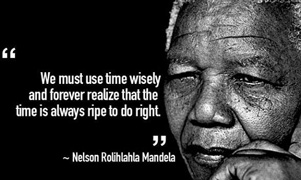
I refer to this challenge of genuine reconciliation because it is a political and moral issue which will gain increasing prominence as our Truth and Reconciliation Commission addresses its difficult task.
I also mention it here in Oukasie because of this community`s history of suffering.
The YCW`s approach has always been to acknowledge and challenge injustice, and then to build the capacity of the oppressed to act in a constructive way that will bring an end to injustice and create a better world for all of us.
The youth of South Africa made a crucial contribution to the struggle for liberation, and I have no doubt in my mind that they have what it will take to put the injustices of the past behind them.
This will demand exactly the kind of determination for organisation and self-development that YCW stands for.
I urge you to continue your work for the development and empowerment of the young people who are members of YCW, and the youth of South Africa in general.
I have often said that South Africa`s greatest assert is not our mineral wealth, but our young people.
The future of this country depends on you - the young people sitting here.
I have always had the greatest confidence that the gains we have made for democracy and justice are safe in your hands; and that you will build South Africa to fulfil its potential to become the great nation that it ought to be.
May God bless the Young Christian Workers in the important work that you are doing!
May you have a good stay in South Africa, and a very successful World Council
Thank you.
God and Light of the World. Amen..
Posted Dec 06, 2013 |
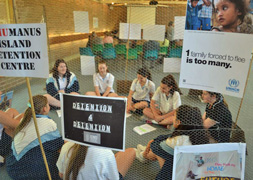 |
'Seeking asylum in Australia'
Marist Justice & Peace groups from Holy Name of Mary parish, Hunters Hill, NSW, the Marist Sisters and the Marist Fathers combined to host an afternoon event at the HNM parish hall on Oct 19.
The afternoon was introduced by Sr Vivienne Goldstein SM and parish priest, Fr Kevin Bates SM. Keynote speakers were Prof Louise Newman from the Centre for Developmental Psychiatry & Psychology at Monash University, Vic, and Abdi Aden, Somalian refugee, arriving in Australia in the 1990s as a youing teenager..
Girls from Monte Sant' Angelo school gave first hand reflections of their 'detention cage' experiences at school, simulating the plight of detained asylum seekers. |
Pope Francis' message for 100th world day of Migrants and Refugees
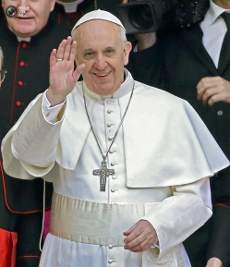
In his annual message, Pope Francis remarks "Each Individual is a part of humanity and, with the entire family of peoples, shares the hope of a better world."
| Dear Brothers and Sisters,
Our societies are experiencing, in an unprecedented way, processes of mutual interdependence and interaction on the global level.
While not lacking problematic or negative elements, these processes are aimed at improving the living conditions of the human family, not only economically, but politically and culturally as well.
Each individual is a part of humanity and, with the entire family of peoples, shares the hope of a better future.
This consideration inspired the theme I have chosen for the World Day of Migrants and Refugees this year: Migrants and Refugees: Towards a Better World.
Read whole text...
Posted Sep 26, 2013 |
Pope Francis' prayer
for peace in Syria
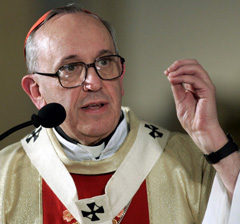
Pope Francis appeals for a day of fasting and prayer on Sep 07
| Pope Francis has issued an important call "for each and every religious person, and those against war, to join him together in prayer, in a spirit of penitence, to ask from God this great gift [of peace] for the beloved Syrian nation and for all the situations of conflict and violence in the world."
This world day of prayer and penance is marked for Sep 07 especially between the hours of 7-12 pm when Pope Francis will lead a prayer vigil in St Peter's Square on the eve of Our Lady's birthday.
There are about 1.2 billion Catholics in the world today and 1 billion people of other Christian denominations (over half a billion of whom are Evangelicals).
Pope Francis has appealed also to non-Christians who welcome peace, to join him. It is in desperate times that people are known to resort to prayer. So potentially that is a powerful cry from people's hearts.
[top of next column...] |
Prayer For Peace In Syria
God of Compassion, hear the cries of the people of Syria,
Bring healing to those suffering from the violence, bring comfort to those mourning the dead, strengthen Syria’s neighbours in their care and welcome for refugees, convert the hearts of those who have taken up arms and protect those committed to peace.
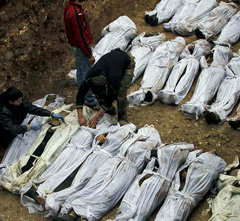
God of Hope, inspire leaders to choose peace over violence and to seek reconciliation with enemies, inspire the Church around the world with compassion for the people of Syria, and give us hope for a future of peace built on justice for all.
We ask this through Jesus Christ, Prince of Peace and Light of the World. Amen..
Posted Sep 06, 2013 |
Better solutions for migrants and refugees in Australia
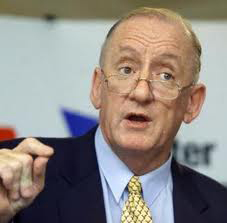
Media release to mark World Migrants and Refugees week from the 'Bishop Joe Grech Colloquium' in Melbourne.
| Former Holy See Ambassador Tim Fischer, Apostolic Nuncio Archbishop Paul
Gallagher and Bishop Gerard Hanna addressed a crowd of over 100 people at the
Australian Catholic University (ACU) Melbourne on Aug 22 about the
pressing issues of migration and poverty.
The colloquium was held to
honour Bishop Joe Grech, who was a steadfast supporter of migrants and refugees
until his untimely death in 2010.
With a particular focus on the
Catholic Church’s commitment to refugees and asylum seekers, each speaker
brought his own personal experience to bear in their
addresses.
Apostolic Nuncio Archbishop Gallagher, focused on his
diplomatic experience emphasising the need for a realistic, compassionate
approach.
“I think that it is clear that the phenomenon (of irregular
migration) cannot be eradicated. Refugees and migrants of all categories, like
the poor, we will have with us always (cfr. Mt 26:11) and there will always be
those whose circumstances are highly irregular.
"We must seek durable solutions,
but we should not be scandalised if we do not find them. The ethical foundation
of our response is in the authenticity and integrity of the response itself”, he
said.
Former Deputy Prime Minister Tim Fischer noted the importance of education and
employment opportunities in raising living standards of migrants and refugees
from poorer nations.
[top of next column...] |
“Firstly, we should never forget the power of
education to lift the standards of living of migrants and indeed people right
around the world be they in Bhutan or Botswana or beyond.”
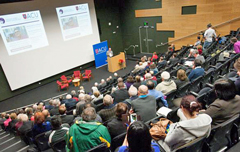
Bishop Gerard Hanna spoke on the pressures facing developing countries who
accept much larger refugee numbers than Australia.
“We ask our
neighbours, poor third world countries, to do what we, a very rich first world
nation, are selfishly unwilling to do ourselves.
"We must open our hearts to
refugees, listen to their hopes and welcome them into our communities. Solutions
must be based in the real world and address the real needs of people”, he
said.
The speakers all showed deep concern with developing viable
solutions and better policy around the issue of asylum seekers and refugees.
Rather than focusing on partisan polics, the speakers looked at the human face
of migration, and examined ethical solutions in their addresses.
Posted, Aug 27, 2013
|
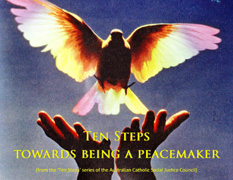
| 'Ten Steps: towards being a peacemaker'
From the 'Ten Steps' series of the Australian Catholic Social Justice Council.
Click here: page 1 page 2 |
'Human beings, not political pawns'
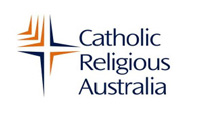
CRA cites Pope Francis on asylum seekers.
| Catholic Religious Australia (CRA) calls upon Prime Minister Kevin Rudd to remember that asylum seekers are human beings, not the means to win votes or the way to punish and deter people smugglers.
CRA President, Sr Annette Cunliffe RSC, expressed shock and disappointment at the new hard-line asylum seeker policy, saying, "What is needed is a long term solution that protects the human rights of all people seeking asylum and treats them with dignity and respect."
"These people must be desperate to attempt long and hazardous boat journeys," she said.
Sr Annette called to mind the words of Pope Francis during his recent visit to Lampedusa, the tiny island off Sicily that has become one of the main points of entry into Europe for poor and desperate migrants willing to risk the crossing in overcrowded and unsafe fishing vessels and small boats.
Thousands are known to have died over the years and unknown numbers of others are presumed lost without trace.
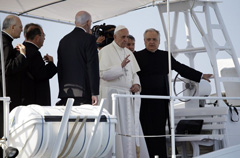
"The 'other' is no longer a brother or sister to be loved, but simply someone who disturbs my life and my comfort", said Pope Francis.
"In this globalized world, we have fallen into globalized indifference. We have become used to the suffering of others: it doesn't affect me; it doesn't concern me; it's none of my business".
[top of next column...] |
"It is a tragedy that people fleeing persecution and looking for safety are dying at sea," said Sr Annette, "but the solution is not to close Australia to people in need".
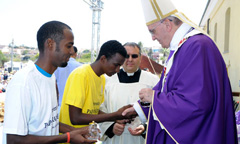
Perhaps we need to join in the prayer of Pope Francis, said Sr Annette.
We beg forgiveness for our indifference to so many of our brothers and sisters. Father, we ask your pardon for those who are complacent and closed amid comforts which have deadened their hearts; we beg your forgiveness for those who by their decisions on the global level have created situations that lead to these tragedies. Forgive us, Lord!
Catholic Religious Australia (CRA) is the peak body for leaders of Religious Institutes and Societies of Apostolic Life resident in Australia. Its membership comprises more than 180 congregations of over 8,000 Sisters, Brothers and Religious Priests living and working in all states and territories.
For enquiries or more information contact:
Suzette Clark RSC
CRA Justice Network Coordinator
043 9710 218
justice@catholicreligiousaustralia.com.au
------------------------------------------
See also: Inside Story: 'Attentiveness and indifference' (Pope Francis at Lampedusa): http://inside.org.au/attentiveness-and-indifference/
Posted, Jul 28, 2013
|
Disturbance Prayer
Rita Wintour's, prayer for change to the human heart.
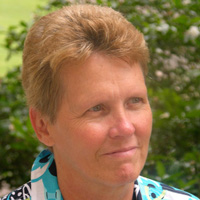
Rita's Brisbane-based 'Mountjoy Presentations' provides creative ideas for liturgy and catechetics.
| 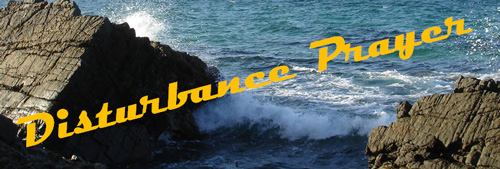 |
Jesus, make me a channel of disturbance.
Where there is apathy, let me provoke.
Where there is compliance, let me bring questioning.
Where there is silence, let me be a voice.
Where there is too much comfort and too little action,
Grant disruption.
Where there are doors closed and hearts locked,
Grant the willingness to listen.
Where laws dictate and pain is overlooked ….
When tradition speaks louder than need ….
When we refuse to take control of our own spiritual growth ….
Our own mission ….
Our own poor ….
Disturb me, O Lord,
Teach me to be radical.
O divine Master
Grant that I may seek rather
To do justice than talk about it;
To be with as well as for, the poor,
To love the hard-to-love as well as the lovely;
To kiss the children of the poor rather than the feet of the crucifix.
For it is in giving that we receive
It is in walking-with that we truly understand.
It is in challenging evil that we achieve justice.
Lord, make me a channel of disturbance. |
Myths about refugees and asylum seekers
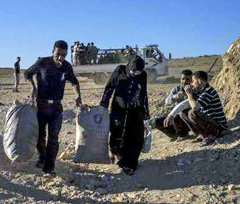
World Refugee Day feature
courtesy Refugee Council of Australia.
The figures quoted from Feb 2011 are disarmingly relevant in 2013.
Links are to the RCOA website.
| The circulation of myths and misinformation is one of the biggest barriers to understanding the issues affecting refugees and asylum seekers.
Myths create confusion and can fuel conflict, resentment and disharmony.
This page aims to highlight the common myths about refugees and asylum seekers and correct the record for people seeking accurate information.
Click on the links below to find out the truth behind these common myths.
[top of next column...] |
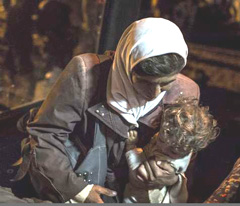
Posted, Jun 20, 2013
World Refugee Day
|
Help save Catholic volunteering
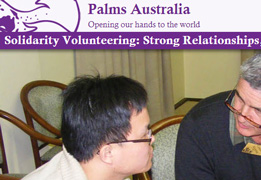
PALMS launches petition to the Foreign Minister
| Palms Australia has launched a petition to Senator Bob Carr, calling on him to re-instate AusAID’s volunteer fund.
The petition highlights the value of Palms Australia’s programs to Australia’s international aid efforts and contrasts them with the program AusAID currently supports, known as AVID.
Each AVID volunteer costs AusAID over $60,000 per year in the field.
Due to Palms’ lean operations, the humble willingness of our volunteers to live on a “local allowance” and the support and infrastructure of our networks, most Palms volunteers cost close to half the AVID price to place.
Palms Australia received AusAID funding under what was known as the Pilot Volunteer Fund, established in recognition of the diversity of volunteers and the organisations which host them, and the flexibility required for aid delivery to be effective.
The Pilot program was tremendously successful, with 20 volunteers taking up placements with Palms Australia and delivering services and staff training to communities in Timor-Leste, South Africa, Tanzania and Kiribati. (This excerpt of the final PVF report demonstrates what was achieved under just one of its numerous objectives.)
The Pilot allowed AusAID to leverage Palms’ smaller size and strong networks to reach into communities who would not be able to host an AVID volunteer.
Sadly, though host communities reported fantastic outcomes from working with the Palms volunteers they hosted, AusAID has decided to end the fund largely, it seems, for the odd notion of branding our aid.
[top of next column...] |
The petition’s appeal explains:
“It had nothing to do with cost, with Palms Australia volunteers costing less than half as much as AVID volunteers.
It had nothing to do with what our aid partners want, with many preferring to work in the relationships they have built with small organisations which share their philosophy or approach to development.
It has nothing to do with what volunteers want, as like partners they have diverse needs not realised by a single monolithic program.
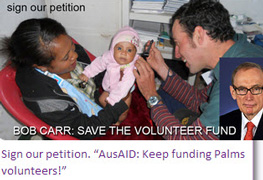
It doesn’t even achieve the goal of increased goodwill towards Australian aid in the way that recognising the diversity of partners and the flexibility of smaller agencies would.
For a tiny cost AusAID could re-instate the volunteer fund and demonstrate that its priority is aid which delivers the best bang for Australian taxpayers’ bucks.”
Palms Australia is calling upon its supporters and those who support an aid program which prioritises increased effectiveness per tax dollar spent, to sign its petition at https://www.change.org/en-AU/petitions/foreign-minister-bob-carr-support-diversity-and-flexibility-in-volunteering-2.
Palms website address is http://www.palms.org.au.
Posted, Jun 06, 2013 |
Bowraville's heartbreak
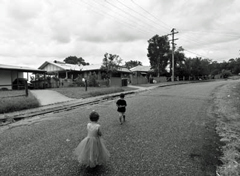
Amy McGuire
From 1990-1991, three Aboriginal children disappeared from the same street on Bowraville mission, on NSW’s mid north coast.
There has only ever been one man accused of the three murders, but flaws in the original police investigation and the criminal justice system have meant he has never been convicted.
Now NSW Attorney General Greg Smith has decided against a re-trial for the man, after two decades of strong campaigning by the victims’ families.
But it has only re-opened the deep wounds of their relatives, who still feel the pain as if it were yesterday....
The storm clouds roll over Gumbaynggirr Road on the Bowraville mission.
It used to be named Cemetery Road, perhaps a sad omen of what would later eventuate there.
Thomas Duroux lives right across from that street sign, in a busy house always full of children.
He is known locally as the “bush mechanic”, and when I’m given directions to his place, I’m told to look for the house with all the cars out the front, “like a car dealership”.
He’s a strong man – both emotionally and physically. He fixes cars because he likes to keep busy.
“I like to do as much as I can,” Mr Duroux tells Tracker.
“Sometimes if I’m sitting here… maybe the subject will come up and I’ll try and get off it because… I upset myself.
“A couple of the lads will come here and say ‘come on, you’ll be alright’. You just have to keep going. If one gives up, I think we’ll all give up.”
It’s been 23 years since Mr Duroux’s 16-year-old son Clinton Speedy-Duroux went missing from the mission.
His body was later found buried at Congarinni Road – near the marijuana crops of the person later accused of his murder.
That was the third murder in the space of five months from Cemetery Rd.
Previously, 16-year-old Colleen Walker and 4-year-old Evelyn Greenup had disappeared.
While Evelyn’s remains were discovered near Clinton’s resting place, Colleen has never been found.
Her clothes were fished out of the local Nambucca River, where they had been weighted down with rocks.
There has never been another alleged perpetrator targeted over the crimes.
A policeman investigating the case, for example, told ABC’s Four Corners, that he could “make a cop show out of this and it wouldn’t get to the first ad break because it’d all be over, because the summation is that quick. There’s no challenge to it”.
Despite disturbing similarities between the cases, that man has never been convicted, and he has only stood trial for Clinton and Evelyn’s murders.
That’s due to several factors – some of which were the institutionalised racism and police incompetence that skewered the original investigation and has had far-reaching consequences today.
For example, when Evelyn went missing, her parents were informed by police that she had probably gone walkabout.
The original detectives were not homicide detectives, had no experience in the area, and were originally investigating the local community over suspicion of child abuse.
To compound matters, police gave crucial evidence back to the accused, and failed to properly report and date a key witness statement – a truck driver who saw the accused standing over Clinton’s motionless body.
That evidence never went to court because of the failure of police to record the right date.
But that has not dimmed the determination of these families.
They have campaigned for two decades to have the man take the stand for all three murders in one trial.
In 1993, a Supreme Court judge ruled against linking the murders of Clinton and Evelyn, a fact that has always been considered a mistake by the families due to the fact key evidence was omitted from both trials, hindering the outcome.
Following the man’s acquittal at Evelyn’s trial in 2006, the families succeeded in having the double jeopardy laws overturned, an Australian, and potentially world-first.
The NSW Police then made an application calling on the state Director of Public Prosecutions to re-trial the man accused.
The families say the DPP ignored the requests.
Through law firm Allens Arthur Robinson, the families also lodged two requests with the former state Attorney General John Hatzistergos, who also decided against using his powers to apply for a re-trial of the accused man.
With the change of government, the families petitioned the new Attorney General Greg Smith, who had previously said he would consider a case.
That brought new storm clouds to Bowraville mission.
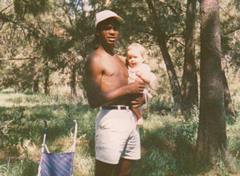
16-year-old Clinton Speedy-Duroux was murdered on Bowraville mission in the early 90s. No one has ever been convicted over his death.
In late 2011, the deputy premier of New South Wales Andrew Stoner stood before a rally full of family members.
They gathered on a rainy morning outside Parliament House in Macquarie St, to hand Mr Stoner a petition urging Mr Smith to proceed with charges based on new “fresh and compelling evidence” (one piece of which was the truckdriver’s statement).
They had lodged the application five months before hand, and had not heard one peep from the Attorney General’s office.
| As storm clouds threatened the umbrella-clad rally, Mr Stoner made a promise to those families, that he would personally take up the matter with the Attorney General, and deliver the news of his decision to the small, mid north-coast town himself.
For 18 months, those families waited for that decision, which finally was delivered in February this year.
But Mr Stoner was no where near the mission.
According to Leonie Duroux, who is related to Clinton through marriage and a prominent campaigner for the families, the news was delivered to her in a quick Friday afternoon phone call.
“Sadly and strategically, at 4:45 on a Friday afternoon we received advice from the Office of the NSW Attorney General via Mr Andrew Stoner that the NSW Attorney General had decided to form the view that there is not enough fresh and compelling evidence to proceed with these cases,” Ms Duroux said.
She did not believe the families’ legal representatives, or the officer in charge of the investigation had been informed formally at that point.
There were no calls to the families of the victims, and Ms Duroux has reason to believe some sections of the media were told before she was.
“We were informed by Mr Stoner that a media article was due for release on the weekend, therefore we have very good reason to believe that the media were advised of the decision prior to the families receiving the information,” she said in a statement.
“We feel strongly that this should have been a time for compassion, not spindoctoring.”
The Attorney General’s office told Ms Duroux that with the new “fresh and compelling” evidence submitted, there would be little chance of a conviction.
“All of the expert opinions we have obtained (over the past 15 years) clearly shows if all 3 cases were tried together there would be reasonable chance of conviction,” she said.
“We are disheartened that after 18 months of consideration we have been served with another shocking conclusion.”
Technically, under the legislation, the Attorney General could still change his mind, and successive applications could be made.
But Tracker understands it is highly unlikely that this will happen.
Gary Jubelin is a detective who has been intimately involved in the Bowraville case for the past 15 years.
He is viewed as a hero cop by the families, for his compassion and drive to deliver justice and correct the original police failings.
Thomas Duroux told Tracker that things would be different if there were “a thousand Gary Jubelins”.
Det Inspt Jubelin said that he is “aware the families and the Bowraville community feel they have been let down by the authorities”.
“The reality of it is something has gone wrong because a person has got away with murdering three children. This should not happen,” Det Inspt Jubelin told Tracker.
“The application rejected by the Attorney General comprised of all the evidence we had gathered over the past 20 years.
“The fact this application has been rejected means in all likelihood the matters will remain unsolved.
“We have no fresh lines of inquiry to pursue. If something new comes to light we will follow it up, but I don’t want to give the families false hope.”
“Shortcomings were identified in the original investigation and investigative opportunities were perhaps not fully explored, that’s why a full re-investigation was undertaken.
“During the re-investigation which has run for over 15 years we have attempted to obtain all available evidence and explore every investigative opportunity.”
” I am sorry for the families that we have not been able to find them justice.
“It does not sit well with me as a NSW Homicide Detective that a person responsible for murdering three children has not been called into account.”
“To say these three murders are not linked is to ignore the facts.
“Three children all known to each other living in the same street in a small country town were murdered over a 5 month period. Their bodies and or the clothing they were wearing at the time of their disappearance were all found in a similar location on the outskirts of town.
“These murders should have been solved”
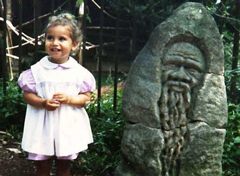
Four-year-old Evelyn Greenup was murdered on the Bowraville mission in the 90s. No one has been convicted over the crime.
It’s a sad, but perhaps not shocking, turn in the long legal saga that has choked these families.
Now the families are directing their efforts to securing a Royal Commission, so the full extent of the original police investigation can be uncovered.
Many of the families only found out key details of the investigation, like the fact the homicide detectives were investigating the community for child abuse, in a Four Corners program aired only a couple of years ago.
But it’s obvious that without a conviction, there will be little chance that they will be able to move on.
The pain is still raw and only justice can relieve it. Today, when members of the families are interviewed, they still struggle to hold back tears.
Anyone who says time can heal the pain has never sat in the same room as parents who have had their children ripped away from them, with no avenue for justice.
Clarice Greenup and her daughter Diane Greenup are the family spokespeople for Evelyn’s father Billy.
Billy can’t speak to outsiders about the pain he still feels for his missing daughter, but it is obvious that it has affected his life. And the pain spills over to his closest family.
About a week after he heard the news about the Attorney General’s decision, he made his way to the same street the accused lived in with his mother 20 years ago (the mother still lives in the same house).
“I couldn’t stop him,” his sister Clarice told Tracker.
“I had to follow him from the mission… he was halfway in the yard when I tried to pull him back.”
She says that he has never been able to find a way to deal with the pain of losing his oldest daughter.
[top of next column...] |
“There is no justice. This man is getting on with his life. He’s got a family, he’s out there working… but we’re stuck here. We’re stuck back there when it happened,” she says.
“My brother doesn’t live. He just exists. He’s existing on alcohol and drugs. That to me is not living.”
Clarice told Tracker that the Attorney General’s decision had “gutted” her family.
“It’s just another door slammed in our faces. As if we don’t exist.
“Just because our kids aren’t here, doesn’t mean to say we’re not going to be here. We have to try and find justice for them. These sorts of things shouldn’t happen.
“… We’re the ones now who have to fight for them.”
Both Clarice and Dianne are adamant that there are two laws – one for black and one for white.
“You got a black law, and a white law, and that’s what it comes down to,” Clarice says.
“Because if this was a white family and a black man, he would have been in jail like that!
“Don’t tell me there are not two laws in this country. There are.”
Diane told Tracker that no one would ever be understand the pain her uncle feels over the loss of a child, and the denial of justice has compounded it.
“We’ve all lost someone,” she told Tracker.
“But we haven’t lost someone the way he lost his child. And that’s hard to deal with…
“We can say yes, we’ve lost her too, but she wasn’t our child. And he does blame himself because he didn’t fight hard to remove the three kids (from the house where Evelyn was last seen).
“He has a lot of blame on himself… a lot of regret for what he could have done.”
Billy is not the only one stuck re-living the horrors of that year his daughter went missing.
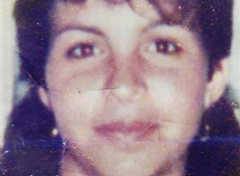
16-year-old Colleen Walker’s body has never been found. She disappeared from Bowraville mission in 1990.
Muriel Craig is the mother of Colleen.
She tells Tracker from her home in Sawtell, about 20 minutes from Coffs Harbour, that she still has days where she expects her daughter to walk through the door.
“I don’t like to think the colour of my skin has got anything to do with it, but it does,” she says.
“We live in the white man’s way, but we’re still no better off.
“Over the years… we met politicians and lawyers and they gave us good advice, but now I feel as though I never achieved anything.
“Like I’m still back there when she went missing. I just did a circle, turned right around and went back.”
“…The police admitted they were wrong, but they’re not paying for the mistake,” Ms Craig says.“It’s us.
“We’re the ones who have to suffer and live with it.
“They can go on with their lives, but for us, we’ve got to wake up every morning and realise what the police have done.”
Ms Craig is currently seeing a therapist to deal with her daughter’s death.
“I’m at my wits end now,” she told Tracker.
She has never been able to bury her daughter, a fact that bears heavily on her mind.
“In my mind, I sort of know what happened to her. But I don’t know where she is,” Ms Craig tells Tracker.
“A lot of people close to me have died, but I can’t bring myself to go to the funeral. It began about 15 or 10 years ago. I just got really down and I tried to go to one, but something just pulled me down and I couldn’t go.”
Ms Craig says the only way she will find some peace is if the accused goes to court.
“If I never find Colleen, it is something I’ll have to learn to accept… and I will because I won’t have a choice.
“But if we could just get him back to court, even for Evelyn and Clinton, that would be some satisfaction.
“It won’t be closure for me. But if we do get him back, if the Attorney General would just change his mind, or new evidence would come forward… at least we get him to court with the three of them together.”
Ms Craig believes that raising the reward from $250,000 to $1 million for information may lead to fresh evidence.
She cites the case of Daniel Morcombe in Queensland.
There is a sense of optimism in her words, despite the continual setbacks.
She believes there are people on the mission who know what happened and she holds on to hope that fresh evidence will surface.
Thomas Duroux laughs at the thought of justice through the white man’s system when I ask him what he thinks of the word.
It’s a sad laughter, borne of frustration and hurt at a criminal justice system that has continually let him down.
But like the rest of the families, he doesn’t believe in quitting.
“You just have to keep going I suppose. If I gave up, the rest of the family here would give up.
That’s one thing I’ll never do,” he says.
“… Maybe if we got justice, we could put it all behind us.
“I’ve put it behind me a bit, but it’s still there. It’s never going to go away until something is done.
“And then it’s still going to be there anyway. Just the memories of him.
“It’ll still be there.”
But the rain clouds still cast their dark shadows over Bowraville mission.
from 'Tracker', Mar 12, 2013
Posted, Jun 01, 2013
See also: 'Get justice for the Bowraville children' |

| Latest ACRATH newsletter
Australian Catholic Religious Against Trafficking with Humans (ACRATH) quotes Pope Francis in his Easter message describing human trafficking as 'the most extensive form of slavery in this 21st century.'
See latest newsletter pages: p.1 | p.2 | p.3 | p.4 |
A Prayer for Peacemakers
From the Australian Catholic Social Justice Council this prayer can be downloaded from here. | 
|
Syrian war of lies and hypocrisy
The West's real target here is not Assad's brutal regime but his ally, Iran, and its chemical weapons
Robert Fisk
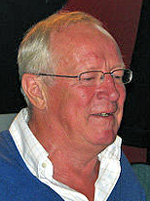
Robert Fisk is a well-known and highly respected journalist who has spent over three decades writing and reporting on the Middle East.
He is author of the monumental ‘The Great War for Civilisation - the Conquest of the Middle East’.
This article, written some months ago for The Independent (UK), helps to clarify if not solve the complex and conflicting interests currently operative in Syria and involved nations - especially the Shia-Sunni divide.
| Has there ever been a Middle Eastern war of such hypocrisy -
a war of such cowardice and such mean morality, of such false rhetoric and such public humiliation?
I'm not talking about the physical victims of the Syrian tragedy. I'm referring to the utter lies and mendacity of our masters and our own public opinion – eastern as well as western – in response to the slaughter, a vicious pantomime more worthy of Swiftian satire than Tolstoy or Shakespeare.
While Qatar and Saudi Arabia arm and fund the rebels of Syria to overthrow Bashar al-Assad's Alawite/Shia-Baathist dictatorship, Washington mutters not a word of criticism against them.
President Barack Obama and his Secretary of State, Hillary Clinton, say they want a democracy in Syria.
But Qatar is an autocracy and Saudi Arabia is among the most pernicious of caliphate-kingly-dictatorships in the Arab world. Rulers of both states inherit power from their families – just as Bashar has done – and Saudi Arabia is an ally of the Salafist-Wahabi rebels in Syria, just as it was the most fervent supporter of the medieval Taliban during Afghanistan's dark ages.
Indeed, 15 of the 19 hijacker-mass murderers of 11 September, 2001, came from Saudi Arabia – after which, of course, we bombed Afghanistan.
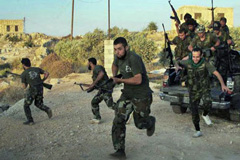
The Saudis are repressing their own Shia minority just as they now wish to destroy the Alawite-Shia minority of Syria. And we believe Saudi Arabia wants to set up a democracy in Syria?
Then we have the Shia Hezbollah party/militia in Lebanon, right hand of Shia Iran and supporter of Bashar al-Assad's regime.
For 30 years, Hezbollah has defended the oppressed Shias of southern Lebanon against Israeli aggression. They have presented themselves as the defenders of Palestinian rights in the West Bank and Gaza.
But faced with the slow collapse of their ruthless ally in Syria, they have lost their tongue.
Not a word have they uttered – nor their princely Sayed Hassan Nasrallah – about the rape and mass murder of Syrian civilians by Bashar's soldiers and "Shabiha" militia.
- Then we have the heroes of America – La Clinton, the Defence Secretary Leon Panetta, and Obama himself. Clinton issues a "stern warning" to Assad.
- Panetta – the same man who repeated to the last US forces in Iraq that old lie about Saddam's connection to 9/11 – announces that things are "spiralling out of control" in Syria. They have been doing that for at least six months. Has he just realised?
- And then Obama told us last week that "given the regime's stockpile of chemical weapons, we will continue to make it clear to Assad … that the world is watching". Now, was it not a County Cork newspaper called the Skibbereen Eagle, fearful of Russia's designs on China, which declared that it was "keeping an eye … on the Tsar of Russia"? Now it is Obama's turn to emphasise how little clout he has in the mighty conflicts of the world. How Bashar must be shaking in his boots.
But what US administration would really want to see Bashar's atrocious archives of torture opened to our gaze?
[top of next column...] |
Why, only a few years ago, the Bush administration was sending Muslims to Damascus for Bashar's torturers to tear their fingernails out for information, imprisoned at the US government's request in the very hell-hole which Syrian rebels blew to bits last week. Western embassies dutifully supplied the prisoners' tormentors with questions for the victims. Bashar, you see, was our baby.
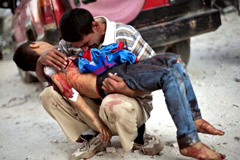
Then there's that neighbouring country which owes us so much gratitude:
And talking of journalism, who in BBC World News decided that even the preparations for the Olympics should take precedence all last week over Syrian outrages?
British newspapers and the BBC in Britain will naturally lead with the Olympics as a local story.
But in a lamentable decision, the BBC – broadcasting "world" news to the world – also decided that the passage of the Olympic flame was more important than dying Syrian children, even when it has its own courageous reporter sending his despatches directly from Aleppo.
Then, of course, there's us, our dear liberal selves who are so quick to fill the streets of London in protest at the Israeli slaughter of Palestinians.
Rightly so, of course. When our political leaders are happy to condemn Arabs for their savagery but too timid to utter a word of the mildest criticism when the Israeli army commits crimes against humanity – or watches its allies do it in Lebanon – ordinary people have to remind the world that they are not as timid as the politicians.
But when the scorecard of death in Syria reaches 15,000 or 19,000 (UN offers reliable estimates in January 2013 at over 60,000 killed in the nearly 2 years of conflict)– perhaps 14 times as many fatalities as in Israel's savage 2008-2009 onslaught on Gaza – scarcely a single protester, save for Syrian expatriates abroad, walks the streets to condemn these crimes against humanity. Israel's crimes have not been on this scale since 1948.
Rightly or wrongly, the message that goes out is simple: we demand justice and the right to life for Arabs if they are butchered by the West and its Israeli allies; but not when they are being butchered by their fellow Arabs.
And all the while, we forget the "big" truth.
That this is an attempt to crush the Syrian dictatorship not because of our love for Syrians or our hatred of our former friend Bashar al-Assad, or because of our outrage at Russia, whose place in the pantheon of hypocrites is clear when we watch its reaction to all the little Stalingrads across Syria.
No, this is all about Iran and our desire to crush the Islamic Republic and its infernal nuclear plans – if they exist – and has nothing to do with human rights or the right to life or the death of Syrian babies. Quelle horreur!
- Iraq. Last week, it suffered in one day 29 bombing attacks in 19 cities, killing 111 civilian and wounding another 235.
- The same day, Syria's bloodbath consumed about the same number of innocents. But Iraq was "down the page" from Syria, buried "below the fold", as we journalists say; because, of course, we gave freedom to Iraq, Jeffersonian democracy, etc, etc, didn't we?
- So this slaughter to the east of Syria didn't have quite the same impact, did it? Nothing we did in 2003 led to Iraq's suffering today. Right?
Posted, Apr 23, 2013 |
Myanmar: the Junta's war against Christian Kachin
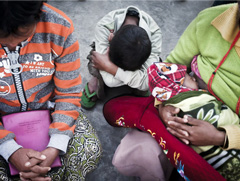
Elizabeth Kendall
Elizabeth Kendall is Adjunct Research Fellow in the Centre for the Study of Islam and Other Faiths at the Melbourne School of Theology.
She is Director of
Advocacy for Christian Faith & Freedom based in Canberra, Australia.
The President of the Kachin Association of Australia (NSW) adds this plea:
'Please continue to pray for current crisis in Northern Burma. The war is getting intense in Kachin and northern Shan State. A True reform should be accompanied by a genuine peace process.
And the world is utterly silent when the Burma Army is bombing the Kachin from the air using fighter jets and helicopter gunships, reportedly using Chinese airspace to do so.
As a result, More IDPs are adding. We have been hearing silent words from so-called Nobel Peace winner "The Lady" Aung San Suu Kyi, 88 and other opposition groups inside Burma. More importantly media has present ...none of this issues.
The world leaders including Australian Government leaders have not spoken any words yet. Please keep us in your prayers so that we will see justice and peace soon and people will have courage to speak up for justice and peace. '
| Kachin State in Burma's far north has a profoundly Christian culture as the ethnic Kachin are overwhelmingly, devoutly Christian.
The fact that Kachin State, which borders China, is rich in jade, timber and water for hydro-electricity is of more interest to Burma's Burman-Buddhist supremacist regime.
The regime, which has no interest in the Kachin as human beings, is very interested in exploiting Kachin lands for the benefit of the Burman-Buddhist majority.
The deeply flawed constitution of 2008 mandates centralisation of government and military against the
interests and wishes of the long-marginalised and severely persecuted ethnic-religious minorities. In early June 2011 the junta used the Kachin Army's refusal to disarm, dissolve and become part of the National Army as grounds to end the 17-year-long ceasefire and go to war against the Kachin.
The junta's aim is that the Christian Kachin will be terrorised
into submission or otherwise they will be ethnically cleansed from their lands.
This would be doubtless under a banner of 'democracy', for it is indeed what the majority of the 'elected' but junta-controlled parliament wants. [See RLPB 115 (06 Jul 2011) - Burma (Myanmar): Kachin Flee in Terror.]
In November 2011 Western governments flocked to praise and reward Burma for its 'irreversible reforms'.
However, Religious Liberty Monitoring asserted that the 'token reforms' were nothing more than a smokescreen 'behind which [the junta] can pursue its brutal policies of racial and religious hatred; policies aimed at the subjugation and even extermination of the non-Burman, non-Buddhist ethnic minorities that live around Burma's periphery'.
The concern was that the West was so keen to draw Burma out of China's embrace into its own that it might be willing to 'reward the tokens while ignoring the genocide'. [See Burma (Myanmar): Interests, Smokescreens, Chemical Weapons & Ethnic Cleansing, Religious Liberty Monitoring (RLM), 2 Nov 2011.]
These days it is difficult to tell whether the government of President Thein Sein in Naypyidaw, the capital of Burma, is a powerless front put forward by the military junta for Western consumption, or a chameleon that
changes its colours according to the direction it is facing.
As many as 100,000 Kachin are now displaced and the same regime that boasts reform continues to deny humanitarian aid to areas under Kachin control.
Consequently 2013 brings with it the prospect of humanitarian catastrophe.
Also, while facing the West the government has been calling for military restraint, but the Tatmadaw (Burmese military) actually has been escalating its war against the Kachin. Laiza is a stronghold of and the headquarters for the Kachin Independence Organisation / Army (KIO / KIA).
[top of next column...] |
More than 15,000 displaced Kachin are sheltered there, struggling to survive despite the junta-imposed aid blockade. In efforts to encircle Laiza, the Tatmadaw has established a base at Lajayang, just 20km (8 miles) from the strategic city.
Recently the KIA seized control of the road running from the state capital Myitkyina to Lajayang, cutting the Tatmadaw's supply line.
On Christmas Day the junta ordered the KIA to clear the road so the Tatmadaw could re-supply. Naturally the Kachin Army refused to stand aside and let its enemy re-supply for war.
The junta has responded with aerial bombardment from fighter jets, strafing from helicopter gunships and mortar shelling. Initially the Burmese government denied that it had been bombing and strafing the Kachin.
Later it amended its story, saying that the on-going aerial bombardment was an act of 'self-defence' for the purpose of maintaining security and stability. In Laiza
the Kachin are digging trenches and bomb shelters. There are fears a ground invasion or a state of siege may be imminent.
MP Aung San Suu Kyi said she would not intervene without an official invitation from the government.
The truth is Suu Kyi had far more power as a political prisoner with nothing to lose than she has now as a lawmaker anxious to preserve her position in parliament.
Furthermore, Suu Kyi actually wants what the junta wants: centralised government with the minority Kachin represented in the parliament. But the Kachin know they
would be swallowed up in a junta-controlled parliament (just as Suu Kyi has been) through the clever strategy of the junta.
The Christian Kachin will defend their lands and continue to press for autonomy, because their lives and liberty depend on it. Thankfully it is their God and ours - who is not subservient to any junta - who has power to save. In God we trust! (Psalm 56.)
PLEASE PRAY SPECIFICALLY THAT GOD WILL -
* hear the cry of his besieged and imperilled people, and hear our cry as we intercede on their behalf; may the Lord of Hosts (the commander of heaven's forces) intervene for his beloved ones in justice and righteousness and in love, mercy and grace. 'This I know, that God is for me.' (Psalm 56:9b)
* intervene in foreign policy, opening eyes and piercing consciences so that the junta might be exposed and held accountable; so that it might no longer be able to persecute, kill, rape and plunder with impunity born of 'interests'.
* supply the Christian Kachin with all their needs, spiritually and materially, that they will praise God for his goodness, and that many will see it and believe.
To view this RLPB with hyperlinks or to access RLPB and RLM archives, visit the Religious Liberty Prayer Bulletin blog at
http://rlprayerbulletin.blogspot.com
Elizabeth Kendal is the author of 'Turn Back the Battle: Isaiah speaks to Christians today' (Deror Books, Dec. 2012) http://turnbackthebattle.com/thebook.html
Posted, Jan 12, 2013 |
Holy Father's message for World Day of Peace, 2013
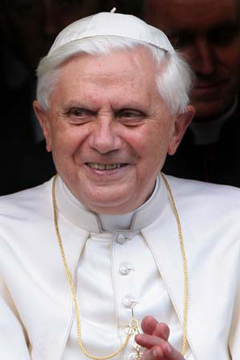
'Blessed are the peacemakers'
| 1. EACH NEW YEAR brings the expectation of a better world. In light of this, I ask God, the Father of humanity, to grant us concord and peace, so that the aspirations of all for a happy and prosperous life may be achieved.
Fifty years after the beginning of the Second Vatican Council, which helped to strengthen the Church’s mission in the world, it is heartening to realize that Christians, as the People of God in fellowship with him and sojourning among mankind, are committed within history to sharing humanity’s joys and hopes, grief and anguish, [1] as they proclaim the salvation of Christ and promote peace for all.
In effect, our times, marked by globalization with its positive and negative aspects, as well as the continuation of violent conflicts and threats of war, demand a new, shared commitment in pursuit of the common good and the development of all men, and of the whole man.
It is alarming to see hotbeds of tension and conflict caused by growing instances of inequality between rich and poor, by the prevalence of a selfish and individualistic mindset which also finds expression in an unregulated financial capitalism. In addition to the varied forms of terrorism and international crime, peace is also endangered by those forms of fundamentalism and fanaticism which distort the true nature of religion, which is called to foster fellowship and reconciliation among people.
All the same, the many different efforts at peacemaking which abound in our world testify to mankind’s innate vocation to peace. In every person the desire for peace is an essential aspiration which coincides in a certain way with the desire for a full, happy and successful human life. In other words, the desire for peace corresponds to a fundamental moral principle, namely, the duty and right to an integral social and communitarian development, which is part of God’s plan for mankind. Man is made for the peace which is God’s gift.
All of this led me to draw inspiration for this Message from the words of Jesus Christ: “Blessed are the peacemakers, for they will be called children of God” (Mt 5:9).
Gospel beatitude
2. The beatitudes which Jesus proclaimed (cf. Mt 5:3-12 and Lk 6:20-23) are promises. In the biblical tradition, the beatitude is a literary genre which always involves some good news, a “gospel”, which culminates in a promise. Therefore, the beatitudes are not only moral exhortations whose observance foresees in due time – ordinarily in the next life – a reward or a situation of future happiness.
Rather, the blessedness of which the beatitudes speak consists in the fulfilment of a promise made to all those who allow themselves to be guided by the requirements of truth, justice and love. In the eyes of the world, those who trust in God and his promises often appear naïve or far from reality. Yet Jesus tells them that not only in the next life, but already in this life, they will discover that they are children of God, and that God has always been, and ever will be, completely on their side. They will understand that they are not alone, because he is on the side of those committed to truth, justice and love. Jesus, the revelation of the Father’s love, does not hesitate to offer himself in self-sacrifice.
Once we accept Jesus Christ, God and man, we have the joyful experience of an immense gift: the sharing of God’s own life, the life of grace, the pledge of a fully blessed existence. Jesus Christ, in particular, grants us true peace, which is born of the trusting encounter of man with God.
Jesus’ beatitude tells us that peace is both a messianic gift and the fruit of human effort. In effect, peace presupposes a humanism open to transcendence. It is the fruit of the reciprocal gift, of a mutual enrichment, thanks to the gift which has its source in God and enables us to live with others and for others.
The ethics of peace is an ethics of fellowship and sharing. It is indispensable, then, that the various cultures in our day overcome forms of anthropology and ethics based on technical and practical suppositions which are merely subjectivistic and pragmatic, in virtue of which relationships of coexistence are inspired by criteria of power or profit, means become ends and vice versa, and culture and education are centred on instruments, technique and efficiency alone.
The precondition for peace is the dismantling of the dictatorship of relativism and of the supposition of a completely autonomous morality which precludes acknowledgment of the ineluctable natural moral law inscribed by God upon the conscience of every man and woman. Peace is the building up of coexistence in rational and moral terms, based on a foundation whose measure is not created by man, but rather by God. As Psalm 29 puts it: “May the Lord give strength to his people; may the Lord bless his people with peace” (v. 11).
Peace: God’s gift and the fruit of human effort
3. Peace concerns the human person as a whole, and it involves complete commitment. It is peace with God through a life lived according to his will. It is interior peace with oneself, and exterior peace with our neighbours and all creation. Above all, as Blessed John XXIII wrote in his Encyclical Pacem in Terris, whose fiftieth anniversary will fall in a few months, it entails the building up of a coexistence based on truth, freedom, love and justice.[2] The denial of what makes up the true nature of human beings in its essential dimensions, its intrinsic capacity to know the true and the good and, ultimately, to know God himself, jeopardizes peacemaking. Without the truth about man inscribed by the Creator in the human heart, freedom and love become debased, and justice loses the ground of its exercise.
To become authentic peacemakers, it is fundamental to keep in mind our transcendent dimension and to enter into constant dialogue with God, the Father of mercy, whereby we implore the redemption achieved for us by his only-begotten Son. In this way mankind can overcome that progressive dimming and rejection of peace which is sin in all its forms: selfishness and violence, greed and the will to power and dominion, intolerance, hatred and unjust structures.
The attainment of peace depends above all on recognizing that we are, in God, one human family. This family is structured, as the Encyclical Pacem in Terris taught, by interpersonal relations and institutions supported and animated by a communitarian “we”, which entails an internal and external moral order in which, in accordance with truth and justice, reciprocal rights and mutual duties are sincerely recognized. Peace is an order enlivened and integrated by love, in such a way that we feel the needs of others as our own, share our goods with others and work throughout the world for greater communion in spiritual values. It is an order achieved in freedom, that is, in a way consistent with the dignity of persons who, by their very nature as rational beings, take responsibility for their own actions.[3]
Peace is not a dream or something utopian; it is possible. Our gaze needs to go deeper, beneath superficial appearances and phenomena, to discern a positive reality which exists in human hearts, since every man and woman has been created in the image of God and is called to grow and contribute to the building of a new world. God himself, through the incarnation of his Son and his work of redemption, has entered into history and has brought about a new creation and a new covenant between God and man (cf. Jer 31:31-34), thus enabling us to have a “new heart” and a “new spirit” (cf. Ez 36:26).
For this very reason the Church is convinced of the urgency of a new proclamation of Jesus Christ, the first and fundamental factor of the integral development of peoples and also of peace. Jesus is indeed our peace, our justice and our reconciliation (cf. Eph 2:14; 2 Cor 5:18). The peacemaker, according to Jesus’ beatitude, is the one who seeks the good of the other, the fullness of good in body and soul, today and tomorrow.
From this teaching one can infer that each person and every community, whether religious, civil, educational or cultural, is called to work for peace. Peace is principally the attainment of the common good in society at its different levels, primary and intermediary, national, international and global. Precisely for this reason it can be said that the paths which lead to the attainment of the common good are also the paths that must be followed in the pursuit of peace.
Peacemakers are those who love, defend and promote life in its fullness
4. The path to the attainment of the common good and to peace is above all that of respect for human life in all its many aspects, beginning with its conception, through its development and up to its natural end. True peacemakers, then, are those who love, defend and promote human life in all its dimensions, personal, communitarian and transcendent. Life in its fullness is the height of peace. Anyone who loves peace cannot tolerate attacks and crimes against life.
Those who insufficiently value human life and, in consequence, support among other things the liberalization of abortion, perhaps do not realize that in this way they are proposing the pursuit of a false peace. The flight from responsibility, which degrades human persons, and even more so the killing of a defenceless and innocent being, will never be able to produce happiness or peace. Indeed how could one claim to bring about peace, the integral development of peoples or even the protection of the environment without defending the life of those who are weakest, beginning with the unborn.
Every offence against life, especially at its beginning, inevitably causes irreparable damage to development, peace and the environment. Neither is it just to introduce surreptitiously into legislation false rights or freedoms which, on the basis of a reductive and relativistic view of human beings and the clever use of ambiguous expressions aimed at promoting a supposed right to abortion and euthanasia, pose a threat to the fundamental right to life.
There is also a need to acknowledge and promote the natural structure of marriage as the union of a man and a woman in the face of attempts to make it juridically equivalent to radically different types of union; such attempts actually harm and help to destabilize marriage, obscuring its specific nature and its indispensable role in society.
These principles are not truths of faith, nor are they simply a corollary of the right to religious freedom. They are inscribed in human nature itself, accessible to reason and thus common to all humanity. The Church’s efforts to promote them are not therefore confessional in character, but addressed to all people, whatever their religious affiliation. Efforts of this kind are all the more necessary the more these principles are denied or misunderstood, since this constitutes an offence against the truth of the human person, with serious harm to justice and peace.
Consequently, another important way of helping to build peace is for legal systems and the administration of justice to recognize the right to invoke the principle of conscientious objection in the face of laws or government measures that offend against human dignity, such as abortion and euthanasia.
One of the fundamental human rights, also with reference to international peace, is the right of individuals and communities to religious freedom.
[top of next column...] |
At this stage in history, it is becoming increasingly important to promote this right not only from the negative point of view, as freedom from – for example, obligations or limitations involving the freedom to choose one’s religion – but also from the positive point of view, in its various expressions, as freedom for – for example, bearing witness to one’s religion, making its teachings known, engaging in activities in the educational, benevolent and charitable fields which permit the practice of religious precepts, and existing and acting as social bodies structured in accordance with the proper doctrinal principles and institutional ends of each.
Sadly, even in countries of long-standing Christian tradition, instances of religious intolerance are becoming more numerous, especially in relation to Christianity and those who simply wear identifying signs of their religion.
Peacemakers must also bear in mind that, in growing sectors of public opinion, the ideologies of radical liberalism and technocracy are spreading the conviction that economic growth should be pursued even to the detriment of the state’s social responsibilities and civil society’s networks of solidarity, together with social rights and duties.
It should be remembered that these rights and duties are fundamental for the full realization of other rights and duties, starting with those which are civil and political.
One of the social rights and duties most under threat today is the right to work. The reason for this is that labour and the rightful recognition of workers’ juridical status are increasingly undervalued, since economic development is thought to depend principally on completely free markets. Labour is thus regarded as a variable dependent on economic and financial mechanisms. In this regard,
I would reaffirm that human dignity and economic, social and political factors, demand that we continue “to prioritize the goal of access to steady employment for everyone.”[4] If this ambitious goal is to be realized, one prior condition is a fresh outlook on work, based on ethical principles and spiritual values that reinforce the notion of work as a fundamental good for the individual, for the family and for society. Corresponding to this good are a duty and a right that demand courageous new policies of universal employment.
Building the good of peace through a new model of development and economics
5. In many quarters it is now recognized that a new model of development is needed, as well as a new approach to the economy. Both integral, sustainable development in solidarity and the common good require a correct scale of goods and values which can be structured with God as the ultimate point of reference.
It is not enough to have many different means and choices at one’s disposal, however good these may be. Both the wide variety of goods fostering development and the presence of a wide range of choices must be employed against the horizon of a good life, an upright conduct that acknowledges the primacy of the spiritual and the call to work for the common good. Otherwise they lose their real value, and end up becoming new idols.
In order to emerge from the present financial and economic crisis – which has engendered ever greater inequalities – we need people, groups and institutions which will promote life by fostering human creativity, in order to draw from the crisis itself an opportunity for discernment and for a new economic model.
The predominant model of recent decades called for seeking maximum profit and consumption, on the basis of an individualistic and selfish mindset, aimed at considering individuals solely in terms of their ability to meet the demands of competitiveness. Yet, from another standpoint, true and lasting success is attained through the gift of ourselves, our intellectual abilities and our entrepreneurial skills, since a “liveable” or truly human economic development requires the principle of gratuitousness as an expression of fraternity and the logic of gift.[5]
Concretely, in economic activity, peacemakers are those who establish bonds of fairness and reciprocity with their colleagues, workers, clients and consumers. They engage in economic activity for the sake of the common good and they experience this commitment as something transcending their self-interest, for the benefit of present and future generations. Thus they work not only for themselves, but also to ensure for others a future and a dignified employment.
In the economic sector, states in particular need to articulate policies of industrial and agricultural development concerned with social progress and the growth everywhere of constitutional and democratic states. The creation of ethical structures for currency, financial and commercial markets is also fundamental and indispensable; these must be stabilized and better coordinated and controlled so as not to prove harmful to the very poor.
With greater resolve than has hitherto been the case, the concern of peacemakers must also focus upon the food crisis, which is graver than the financial crisis. The issue of food security is once more central to the international political agenda, as a result of interrelated crises, including sudden shifts in the price of basic foodstuffs, irresponsible behaviour by some economic actors and insufficient control on the part of governments and the international community.
To face this crisis, peacemakers are called to work together in a spirit of solidarity, from the local to the international level, with the aim of enabling farmers, especially in small rural holdings, to carry out their activity in a dignified and sustainable way from the social, environmental and economic points of view.
Education for a culture of peace: the role of the family and institutions
6. I wish to reaffirm forcefully that the various peacemakers are called to cultivate a passion for the common good of the family and for social justice, and a commitment to effective social education.
No one should ignore or underestimate the decisive role of the family, which is the basic cell of society from the demographic, ethical, pedagogical, economic and political standpoints. The family has a natural vocation to promote life: it accompanies individuals as they mature and it encourages mutual growth and enrichment through caring and sharing.
The Christian family in particular serves as a seedbed for personal maturation according to the standards of divine love. The family is one of the indispensable social subjects for the achievement of a culture of peace.
The rights of parents and their primary role in the education of their children in the area of morality and religion must be safeguarded. It is in the family that peacemakers, tomorrow’s promoters of a culture of life and love, are born and nurtured.[6]
Religious communities are involved in a special way in this immense task of education for peace. The Church believes that she shares in this great responsibility as part of the new evangelization, which is centred on conversion to the truth and love of Christ and, consequently, the spiritual and moral rebirth of individuals and societies. Encountering Jesus Christ shapes peacemakers, committing them to fellowship and to overcoming injustice.
Cultural institutions, schools and universities have a special mission of peace. They are called to make a notable contribution not only to the formation of new generations of leaders, but also to the renewal of public institutions, both national and international.
They can also contribute to a scientific reflection which will ground economic and financial activities on a solid anthropological and ethical basis. Today’s world, especially the world of politics, needs to be sustained by fresh thinking and a new cultural synthesis so as to overcome purely technical approaches and to harmonize the various political currents with a view to the common good.
The latter, seen as an ensemble of positive interpersonal and institutional relationships at the service of the integral growth of individuals and groups, is at the basis of all true education for peace.
A pedagogy for peacemakers
7. In the end, we see clearly the need to propose and promote a pedagogy of peace. This calls for a rich interior life, clear and valid moral points of reference, and appropriate attitudes and lifestyles. Acts of peacemaking converge for the achievement of the common good; they create interest in peace and cultivate peace. Thoughts, words and gestures of peace create a mentality and a culture of peace, and a respectful, honest and cordial atmosphere.
There is a need, then, to teach people to love one another, to cultivate peace and to live with good will rather than mere tolerance. A fundamental encouragement to this is “to say no to revenge, to recognize injustices, to accept apologies without looking for them, and finally, to forgive”,[7] in such a way that mistakes and offences can be acknowledged in truth, so as to move forward together towards reconciliation.
This requires the growth of a pedagogy of pardon. Evil is in fact overcome by good, and justice is to be sought in imitating God the Father who loves all his children (cf. Mt 5:21-48). This is a slow process, for it presupposes a spiritual evolution, an education in lofty values, a new vision of human history.
There is a need to renounce that false peace promised by the idols of this world along with the dangers which accompany it, that false peace which dulls consciences, which leads to self-absorption, to a withered existence lived in indifference.
The pedagogy of peace, on the other hand, implies activity, compassion, solidarity, courage and perseverance.
Jesus embodied all these attitudes in his own life, even to the complete gift of himself, even to “losing his life” (cf. Mt 10:39; Lk 17:33; Jn 12:25). He promises his disciples that sooner or later they will make the extraordinary discovery to which I originally alluded, namely that God is in the world, the God of Jesus, fully on the side of man.
Here I would recall the prayer asking God to make us instruments of his peace, to be able to bring his love wherever there is hatred, his mercy wherever there is hurt, and true faith wherever there is doubt. For our part, let us join Blessed John XXIII in asking God to enlighten all leaders so that, besides caring for the proper material welfare of their peoples, they may secure for them the precious gift of peace, break down the walls which divide them, strengthen the bonds of mutual love, grow in understanding, and pardon those who have done them wrong; in this way, by his power and inspiration all the peoples of the earth will experience fraternity, and the peace for which they long will ever flourish and reign among them.[8]
With this prayer I express my hope that all will be true peacemakers, so that the city of man may grow in fraternal harmony, prosperity and peace.
From the Vatican, 8 December 2012
BENEDICTUS PP XVI
[1] Cf. SECOND VATICAN ECUMENICAL COUNCIL, Pastoral Constitution on the Church in the Modern World, Gaudium et Spes, 1.
[2] Cf. Encyclical Letter Pacem in Terris(11 April 1963): AAS 55 (1963), 265-266.
[3] Cf. ibid.: AAS 55 (1963), 266.
[4] BENEDICT XVI, Encyclical Letter Caritas in Veritate(29 June 2009), 32: AAS 101 (2009), 666-667.
[5] Cf. ibid, 34 and 36: AAS 101 (2009), 668-670 and 671-672.
[6] Cf. JOHN PAUL II, Message for the 1994 World Day of Peace(8 December 1993): AAS 86 (1994), 156-162.
[7] BENEDICT XVI, Address at the Meeting with Members of the Government, Institutions of the Republic, the Diplomatic Corps, Religious Leaders and Representatives of the World of Culture, Baabda-Lebanon (15 September 2012): L’Osservatore Romano, 16 September 2012, p. 7.
[8] Cf. Encyclical Letter Pacem in Terris(11 April 1963): AAS 55 (1963), 304.
Posted, Jan 04, 2013 |
|

